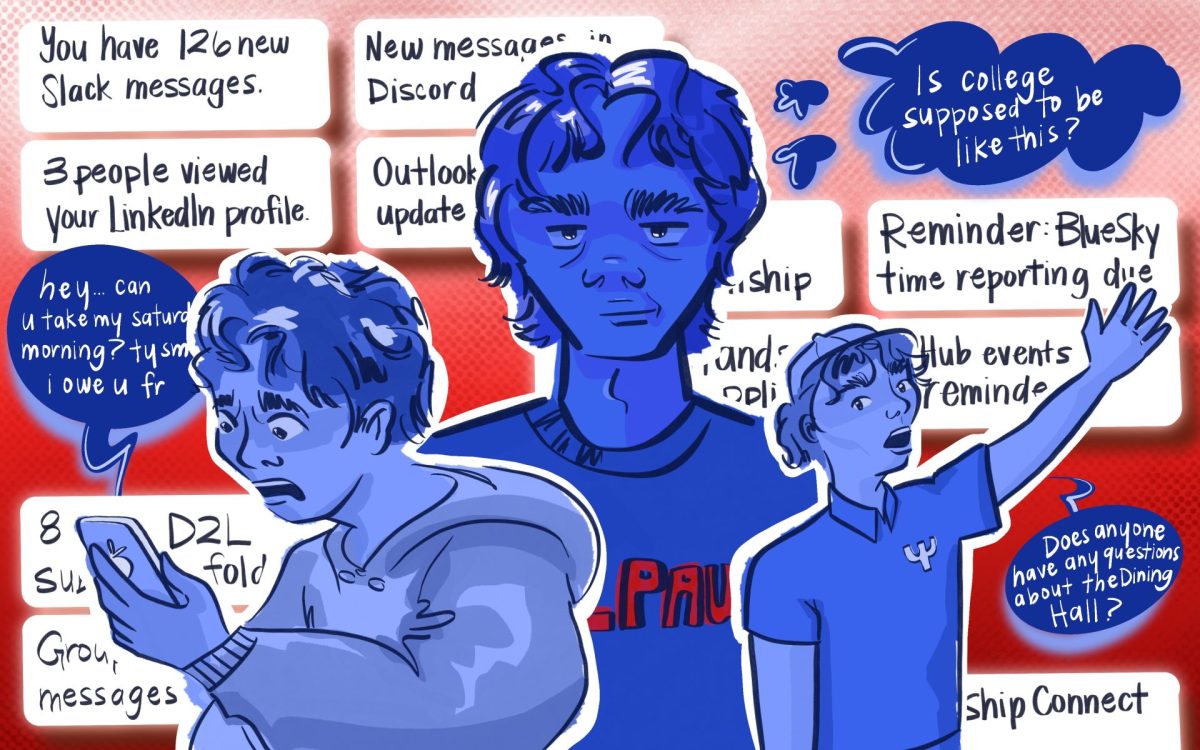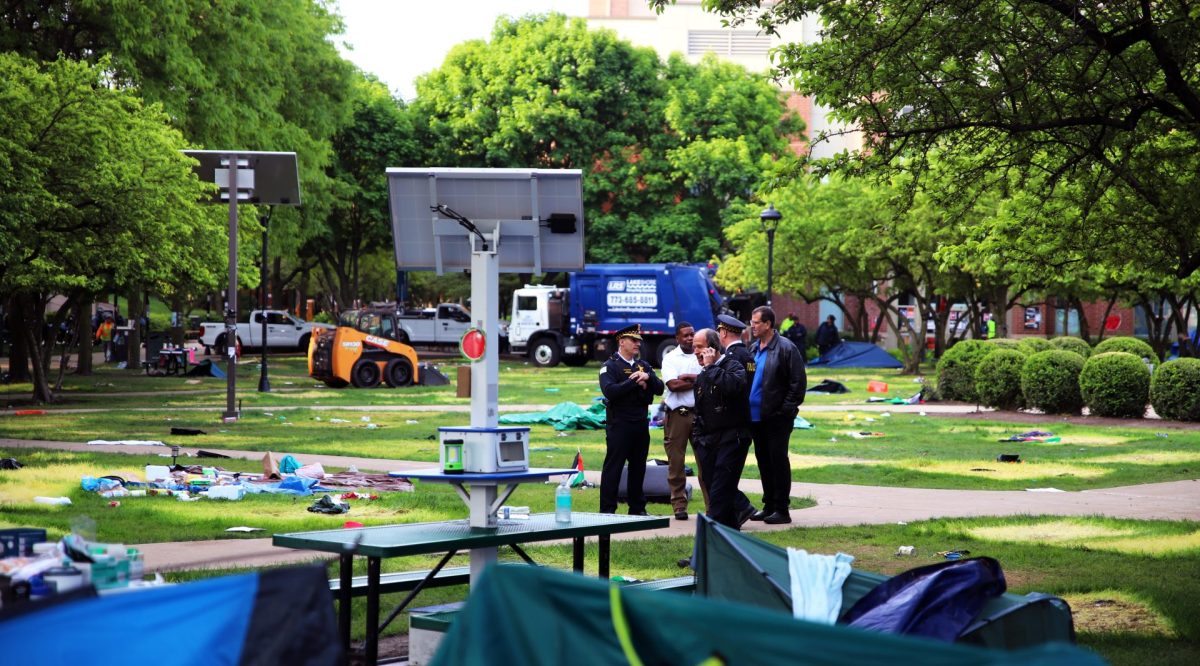Ana Israelson, a 19-year-old DePaul junior, works off-campus while taking classes to afford rent and groceries. If she had the choice, she would focus exclusively on her life as a student.
“I’m jealous of people who are not that worried about [working],” Israelson said. “I feel like my academic life would be a lot better if I didn’t have to work while being here.”
The National Center for Education Statistics reports that 40% of full-time undergraduate students are employed while taking classes, but not all of them work off-campus jobs that can conflict with class schedules.
Many students like Israelson said they work to afford housing and groceries but also to help them pay tuition which skyrocketed in recent decades.
As DePaul has raised tuition costs in recent years, students are experiencing this issue firsthand.
Israelson works roughly 30 hours per week as a food runner and cashier at a pizza restaurant. She said her ability to balance work and school can be a struggle at times.
“Sometimes I have to prioritize rent over school because I don’t want to be homeless in Chicago,” Israelson said. “I have to [make] sacrifices, and a lot of the time it does end up being academics.”
According to a 2021 study from the University of Pennsylvania, employed students at four-year universities are more likely to receive lower scores on coursework than their peers who do not have jobs.
Edie Leonard, a 22-year-old DePaul senior, said her experience working on campus allows her to prioritize life as a college student more than an off-campus job would.
“When you’re a DePaul worker, you are a student first,” Leonard said. “Anywhere else you go you’re just a worker.”
Leonard works as a tour guide and an admissions front desk receptionist. She said working on campus provides unique opportunities for students.
“It’s really beneficial in terms of networking because you are working a job, but you are connected to your university still,” she said.
However, working on campus comes with limitations. Students who work on-campus at DePaul can work a maximum of 25 hours per week, which Israelson said she “understands to an extent,” but recognizes that it can be difficult for students who work to support themselves financially.
Leonard also said the 25-hour limit could create financial limitations for students.
“If you are working a DePaul job and you are trying to make ends meet, you definitely need another job,” Leonard said.
For other student workers, limited hours are not the only unique difficulty of working on campus.
Maximos Villaseñor, a 21-year-old DePaul junior, works as a resident assistant (RA). He said that one drawback to the job is the fact that he lives where he works.
“Although you’re not always ‘on duty,’ you always are an RA,” Villaseñor said.
While it seems like Villaseñor rarely gets a break in his own living space, he is happy he can “build those skills of leadership” that come with the position while living on campus for free — a perk that makes college much more affordable.
While it is true that RAs do not have to pay for rent, Villaseñor said that the position has its own financial limitations. For instance, the partial meal plan RAs receive only includes 45 meal swipes and 300 flex dollars per quarter.
“If you do the math for how long we are on campus, that’s not enough to have one meal per day,” Villaseñor said.
According to a study from the U.S. Bureau of Labor Statistics, Chicago residents spend more of their income on housing and food than the national average.
Because of this, Villaseñor also works as a desk receptionist for the dorms to help pay for his meals. Even though he does not pay for housing, he still has to work a second job because “the cost of living in Chicago is just really expensive.”
Students in Chicago face exceedingly higher expenses than other students around the country, as RentCafe finds that the cost of living in Chicago is 50 percent higher than the national average.
Israelson adjusted her schedule to accommodate her work hours, like taking more asynchronous classes. Still, she said this choice has negatively impacted her life at DePaul.
“I’m not getting the college experience of being on campus as much,” Israelson said. “It sucks.”
She and other working students want their peers to understand that working while earning a degree makes it more difficult to get the most out of college.
“This undergrad degree is a lot when you’re also focusing on living,” Israelson said.



















